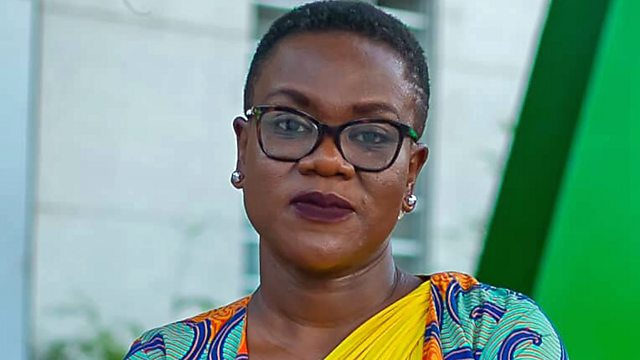Tween Talk with Eugenia Tachie-Mension
“Walter felt trapped. He saw himself as a normal boy, who really wanted to learn, play, and enjoy himself. But nothing turned out the way he wanted. No one around him seemed to understand what he said, no matter how much he would gesture, shout, or wave his arms about. And to top it all, not even his own body would do what he wanted. Sometimes he tried to talk, and all that came out were senseless noises. Or he would try to pick something up, and his hands would throw it to the floor. Or he would try to hug his mother and end up shoving her away. And sometimes he couldn’t even think straight.
All this made him feel very angry and powerless, and many people around him grew to believe that he was a dangerous, aggressive boy. They would leave him alone and take no interest in him. When this happened, Walter felt sad, and thought to himself: “If only they knew what it is like to be me…”
Then, one day, Walter met Alice, a wonderful special little girl. She seemed to be the only person who understood his suffering. With great patience, she spent hours and hours teaching Walter how to control his hands, how to say words properly, and how to control his wild thoughts. And when, after a long time and lots of care, Walter was ready, Alice helped him understand the mystery.
It only needed a couple of photographs, already somehow familiar to Walter, but on that occasion, being much better prepared to understand, he realised: Walter and Alice were normal children like everyone else, the only difference was that they were trapped inside disabled bodies.
And then, thanks to Alice, the doors of Walter’s prison were flung open.”
Were you moved by this story? Well, I very much was. It must have been lonely for Walter; I could almost feel his pain at not being understood…at being shunned by others because of how differently he looked and behaved. Discrimination: that’s exactly what Walter experienced. And it wasn’t a pleasant experience, evidently.
To discriminate simply means to treat differently – “to treat a person or particular group of people differently, especially in a worse way in which you treat other people, because of their skin colour, {gender}, etc.” according to Cambridge dictionary. And in Walter and Alice’s cases they were being ignored because of their disability.
Discrimination manifests daily and in different ways and one must be conscious and cautious not to be a perpetrator – especially since you wouldn’t like to be discriminated against yourself. I want to touch on a few yet predominant areas of discrimination, apart from the disability incidence we’ve just read about.
Discrimination – Photo Credit Getty Images
- Race – the African race is one of the most discriminated against and let me be the first to tell you…it is an unpleasant feeling. Whilst you may be too young to have experienced it or realised you were being discriminated against, it’s almost a daily occurrence in the life of an African, especially African Americans. Read about the George Floyd, the African American whose neck was knelt on for 9 minutes and 29 seconds by a US Police Officer, which led to his death, and the phenomenal global protests against police brutality {against Black people, especially)
- Gender – females tend to be the more discriminated against gender of the two – male and female. Girls in some communities are not allowed to go to school because they are…girls. In religion, some faiths do not allow for women to attain priesthood or certain leadership positions because they are…women
- Youth – young people are discriminated against constantly. It usually involves being belittled, not seeking their opinions in issues that concern them or not accommodating their needs in our social spaces (where are young people in Ghana to go to for leisure, for instance?)
I am sure you can relate to the last point, more so because it relates directly to you. And you probably find it very frustrating, no? So, you promise yourself this – that, since you don’t like being discriminated against, you will respect cultural and racial differences in your space, avoid gender-offensive humour or pranks, be accommodating and understanding of persons with disabilities and refuse to participate or condone discrimination or harassment. Discrimination does hurt people and as we have seen in the case of George Flog, killed them too. Be the change you wish to see in your community.
*story culled from freestoriesforkids.com










